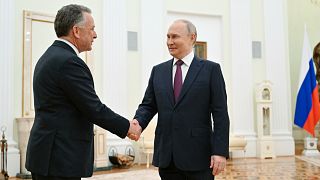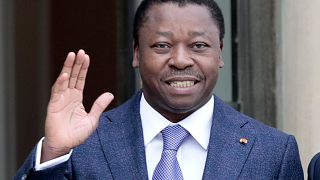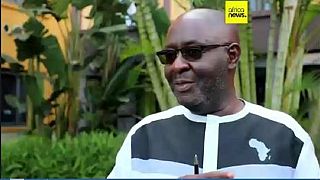Rwanda
Rwandans gathered on Sunday (April 7) to begin a solemn commemoration of the lives of 800,000 Tutsi and moderate Hutus murdered during the Rwandan genocide, a three-month-killing spree that began 25 years ago.
The ceremony marks the beginning of a week of events to honour the dead. President Paul Kagame laid a wreath at Gisozi genocide memorial site, where over a quarter a million of people are buried.
Kagame and his wife Jeanette were joined by the African Union Commission and European Commission heads, Moussa Faki Mahamat and Jean-Claude Juncker respectively.
In the afternoon, officials will join around 2,000 people in a “walk to remember” from parliament to the national soccer stadium, where candles will be lit in a night vigil.
At least 10 heads of state were expected to attend, Stephanie Nyombayire, head of communication at the president’s office, told journalists on Saturday. Canadian Governor General Julie Payette and European Commission President Jean-Claude Juncker were also expected.
The 100 days of slaughter began on April 6, 1994, after President Juvenal Habyarimana and his counterpart Cyprien Ntaryamira of Burundi – both Hutus – were killed when their plane was shot down over the Rwandan capital. The attackers have never been identified.
The attack mobilised Hutu government soldiers and allied extremist militia, who orchestrated the genocide to exterminate the Tutsi minority.
In villages across the densely populated country, neighbour turned on neighbour as men, women and children were hacked to death, burned alive, clubbed and shot.
As many as 10,000 people were killed daily. Seventy percent of the minority Tutsi population was wiped out, and over 10 percent of the total Rwandan population.
The fighting ended in July 1994 when the Rwandan Patriotic Front (RPF), a Tutsi-led rebel movement led by Kagame, swept in from Uganda and seized control of the country.
Official policy is to strongly discourage any talk of ethnicity, but the opposition says the tight control of the media and political sphere is also used to stifle dissent, something the government denies.
REUTERS











Go to video
Rwanda agrees to give safe passage to SADC forces leaving the DRC
Go to video
Two years into war, Sudan faces a humanitarian crisis of massive proportions
01:02
Sudan accuses UAE of contributing to genocide
Go to video
United Nations marks anniversary of genocide in Rwanda
02:26
Mixed feelings in Goma ahead of DR Congo's talks with M23 rebels
01:24
UK PM Keir Starmer slams previous government's Rwanda immigration scheme as "inefficient"